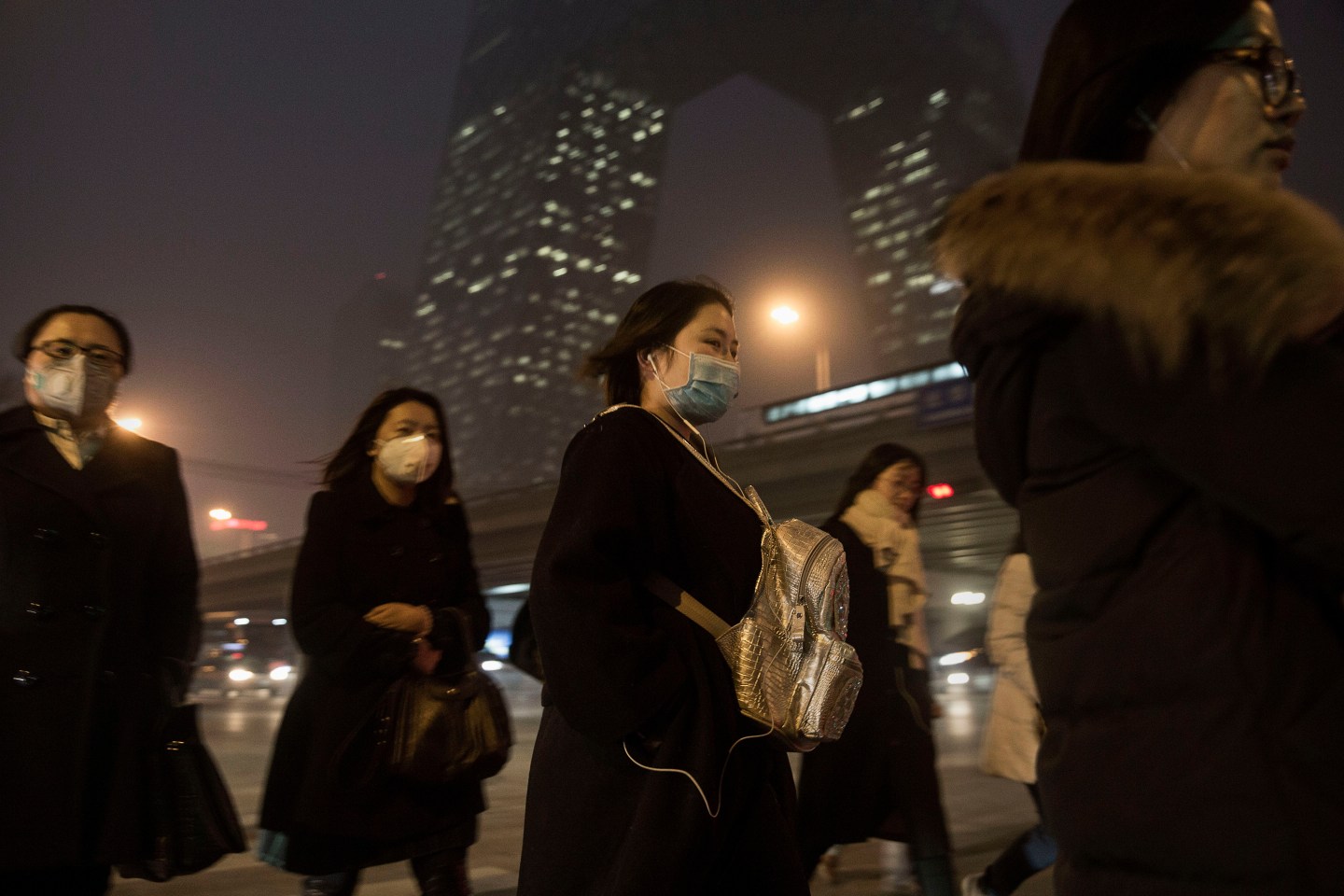Industrial greenhouse gas emissions may be on track to decline in 2015 after only slightly rising last year, the Global Carbon Project announced at the United Nations climate summit on Monday.
While global carbon emissions grew by 2.4% annually in the past decade, emissions only grew by .6% last year—even as global gross domestic product grew. For 2015, the Global Carbon Project expects emissions to decline by .6%.
The abatement in emissions is largely due to China’s decreased coal use, as the country’s economic growth slows and a rising pollution problem focuses the ruling party’s attention on renewable energy sources. The global slowdown in oil demand and faster growth in renewables may have also played a role, according to an article published concurrently with the announcement in Nature Climate Change.
But the apparent peak in emissions does not necessarily mean that pollution has reached an inflection point. A recovery in the Chinese economy could push coal use back to previous levels, and future development in India could create a separate coal emissions glut, according to The New York Times.
“Whether the unexpectedly low growth rates in CO2 emissions observed in 2014 and 2015 are a first sign of an approaching global peak in emissions is unclear,” a group of scientists affiliated with the Global Carbon Project wrote in the article. “Even if emissions were to peak soon, global emissions would still take years to decline substantively. An acceleration in the transformation of energy use and production is needed to set global emissions on course to complete decarbonization, as required for climate stabilization.”












